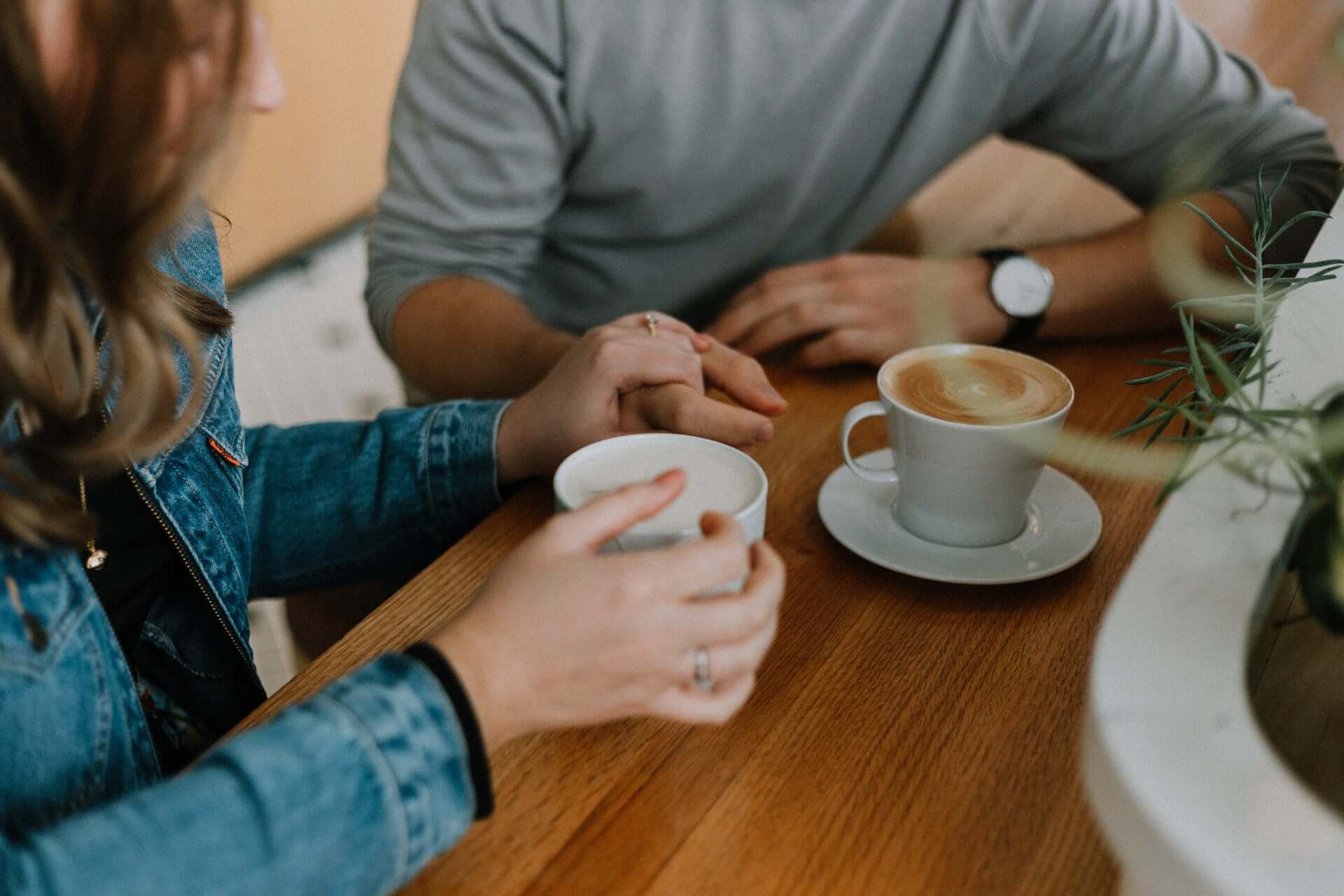
Inhaltsverzeichnis
Mit Einsamkeit umgehen – Tipps & Übungen
Einsamkeit kann jeden betreffen. Sich allein zu fühlen, auch wenn man unter Menschen ist, ist kein schönes Gefühl. Einsamkeit kann chronisch werden, mit sozialer Isolation einhergehen und körperliche sowie psychische Folgen haben. Tipps und Übungen zum Umgang mit Einsamkeit findest du hier.
Das Wichtigste vorab
Zuerst einmal ist es wichtig, zu akzeptieren, dass Einsamkeit ein absolut normales Gefühl ist und nichts, weshalb man sich schämen sollte. Jeder von uns hat sich schon einmal einsam gefühlt oder wird diesem Gefühl irgendwann in seinem Leben begegnen. Einsamkeit ist eine subjektive und individuelle Erfahrung – Wenn du dich einsam fühlst, dann bist du es auch. Der Kontakt zu anderen Menschen ist ein menschliches Bedürfnis so wie Hunger, Durst oder Schlaf. So wie andere Gefühle auch kann Einsamkeit, wenn sich ihr lange nicht gewidmet wird, chronisch werden und massive Auswirkungen auf andere Bereiche des Lebens haben.
+++ Wenn es dir schon seit langer Zeit nicht gut geht, du dich akut einsam fühlst, über Suizid nachdenkst oder mit jemandem sprechen möchtest, kannst du das Angebot der Telefonseelsorge nutzen. Die ist rund um die Uhr kostenlos erreichbar unter 0800 111 0 111 und 0800 111 0 222. Du kannst dabei selbstverständlich anonym bleiben. Über diesen Link findest du weitere Hilfsangebote. +++
Was man gerne macht, wenn man Schmerz, Leid oder Traurigkeit empfindet, ist, diese von sich weg zu schieben und zu unterdrücken. Man hofft, dass diese Gefühle irgendwann von selbst weggehen. Genau so gut weiß man aber meistens auch, dass das nicht der Fall ist…
Am besten, schnellsten und nachhaltigsten geht man mit Gefühlen um, in dem man sich ihnen stellt. Die Akzeptanz der eigenen Gefühlswelt spielt dabei eine große Rolle. Es ist wichtig, sich nicht sofort dafür zu verurteilen, wie man sich fühlt. Man sollte möglichst ohne Bewertung auf das schauen, was in einem selbst vor sich geht. Wie ein neutraler Beobachter von außen. Bei der Auseinandersetzung mit der eigenen Einsamkeit können Reflexionsübungen und eine bewusste Selbstbeobachtung helfen.

Tipps + Reflexionsübungen
Nimm dir für diese Übung gerne ein Blatt Papier und einen Stift zur Hand, damit du deine Gedanken und Überlegungen aufschreiben kannst. Das ordnet die Gedanken, du schaffst dir einen Überblick und kannst in späteren Situationen wenn du magst noch einmal zu dem zurückkehren, was du aufgeschrieben hast.
Unangenehme soziale Interaktionen
Denke an eine (oder mehrere) Situationen zurück, in denen du Kontakt zu anderen Personen hattest, und nach denen du dich negativ, wütend, verärgert oder vor den Kopf gestoßen gefühlt hast. Ob an der Kasse im Supermarkt, bei der Arbeit, mit deinen Verwandten, Freunden oder anderen Menschen, denen du begegnet bist.
- Nun überlege, worauf dein Fokus in diesem Moment / diesen Momenten lag. War deine Aufmerksamkeit bei dir oder bei der anderen Person? Hast du dich auf das fokussiert, was die andere Person getan oder gesagt hat? Hast du darauf geachtet, wie du dich gibst, warst du in Gedanken oder hast du aufmerksam zugehört?
- Wahrscheinlich eine Mischung aus all diesen Dingen. Nun frage dich, ob du in der Situation / in den Situationen negative Aspekte gezielt hervorhebst. Wenn man sich einsam fühlt, kann es nämlich passieren, dass man das Verhalten anderer Menschen negativer einschätzt, als es eigentlich (objektiv betrachtet) gewesen ist.
- War die Interaktion wirklich negativ? Oder vielleicht eher neutral oder sogar positiv? Worum ging es eigentlich? Was hat die andere Person gesagt? Hat sie wirklich etwas schlechtes, negatives gesagt, oder hast du ihren Worten weitere Bedeutungen zugeschrieben? Wenn die Person negativ reagiert hat, bist du dir sicher, dass diese Reaktion etwas mit dir zu tun hat? Oder gibt es noch andere Möglichkeiten? Vielleicht war die Reaktion der anderen Person nicht negativ gemeint, aber kam ablehnend rüber, weil sie keine Zeit hatte? Vielleicht reagierte die Person genervt, weil sie privaten Stress hatte, müde war oder aufgrund einer anderen Interaktion bereits gereizt war? Und nicht wegen dir? …
Deine Gedanken über die Welt und andere Menschen
Du kannst auch darüber reflektieren, wie du deine Umwelt an sich wahrnimmst und welche Gedanken du über die Welt im Allgemeinen hast.
Empfindest du andere Menschen generell als Bedrohung? Nimmst du das Schlimmste an, wenn es um die Absichten anderer geht? Gehst du davon aus, dass andere dich nicht um sich haben wollen? Hast du bereits vor einer anstehenden sozialen Interaktion entschieden, wie diese verlaufen wird? Vermeidest du Situationen mit anderen Menschen, weil sie dich potentiell verletzen könnten? Ziehst du dich (unbewusst) zurück, um einem möglichen Schmerz auszuweichen?
Falls das so ist, kannst du in künftigen Situationen versuchen, neutraler an die Interaktionen heranzugehen? Kannst du anderen einen Vertrauensvorschuss geben? Kannst du akzeptieren, dass andere nicht automatisch gegen dich sind? Kannst du versuchen, dich ein wenig zu öffnen?
Dein Verhalten
Auch dein Verhalten kannst du reflektieren, indem du dir folgende Fragen stellst:
Vermeidest du Möglichkeiten, Zeit mit anderen zu verbringen? Suchst du nach Entschuldigungen und Ausreden, um Einladungen ablehnen zu können? Wie verhältst du dich selbst in Interaktion mit anderen? Stößt du andere Menschen ab, um dich selbst zu schützen? Reagierst du, als ob du angegriffen worden wärst? Suchst du aktiv nach neuen Bekanntschaften? Pflegst du deine Freundschaften? Sendest du von dir aus Nachrichten oder tätigst Anrufe, um dich mit anderen in Verbindung zu setzen? Identifizierst du dich mit der Rolle “der/des Einsamen” und akzeptierst deinen Status quo?
Jeder Mensch und jede Situation ist einzigartig
Weil wir alle unterschiedlich sind und jeder in seiner ganz individuellen Situation steckt, mit verschiedensten Herausforderungen, Gefühlen und Gedanken, kann es sein, dass Selbstbeobachtung und Selbstreflexion allein nicht ausreichen. Wenn das bei dir der Fall ist, und du merkst, dass du alleine nicht weiter kommst, dann suche dir bitte professionelle Hilfe. Es ist absolut keine Schande und auch kein Zeichen von Schwäche. Ganz im Gegenteil: Es zeugt von Mut, die Hand auszustrecken und um Hilfe zu bitten.
Einsamkeit ist ein Thema, was meiner Meinung nach mehr Aufmerksamkeit bekommen sollte. Wir Menschen haben uns eine wunderbare Welt mit unzähligen Möglichkeiten aufgebaut. Aber nichts von dem, was wir erschaffen haben und unser Leben erleichtern soll kann unser biologisches Bedürfnis nach sozialen Kontakten, Beziehungen und Interaktionen ersetzen. Die meisten Tiere bekommen das, was sie zum (Über-)Leben brauchen, aus der Umwelt. Wir Menschen bekommen, was wir brauchen, voneinander. Und genau darauf sollte unsere moderne Welt aufgebaut sein: Auf Miteinander, nicht auf Individualismus.
Eine kleine Hausaufgabe…
Wie wär’s, wenn wir beide heute etwas zusammen ausprobieren: Wir melden uns bei jemandem; initiieren eine Interaktion.
Mach es, auch, wenn du dich gerade im Moment gar nicht so einsam fühlst. Damit kannst du den Tag von jemand anderem ein bisschen besser machen. Vielleicht schreibst du einem Freund oder einer Freundin, dass du gerade an sie gedacht hast. Fragst die Person, wie es ihr geht. Oder du rufst jemanden aus deiner Familie an. Du kannst natürlich auch gerne einen Kollegen / eine Kollegin zum Kaffee einladen oder einen kleinen Spaziergang mit ihm / ihr machen. Vielleicht probierst du auch etwas Neues aus, vor dem du normalerweise zu viel Angst hast oder wofür du zu sonst zu faul bist, wie Sport oder eine Veranstaltung.
Was auch immer sich mit deinem Tagesablauf vereinbaren lässt, was auch immer dir passt.
Es kann passieren, dass aus deiner Kontaktaufnahme nichts wird, die Person nicht sofort antwortet oder bereits andere Pläne hat. Aber das macht nichts. Geh möglichst ohne Erwartungen an die Sache. Es geht primär darum, dass wir unsere “sozialen Muskeln” stärken. Mit der Zeit wird es uns wieder leichter fallen, uns zu öffnen und auf andere zuzugehen. Oder wir helfen anderen Menschen, genau das zu tun. Und das ist doch auch super, oder?
Wenn du noch mehr über die Themen Achtsamkeit, gesunde Ernährung oder Nachhaltigkeit erfahren möchtest, schaue doch mal hier vorbei.

Photo by 🇸🇮 Janko Ferlič on Unsplash



























Leave a comment
This site is protected by hCaptcha and the hCaptcha Privacy Policy and Terms of Service apply.